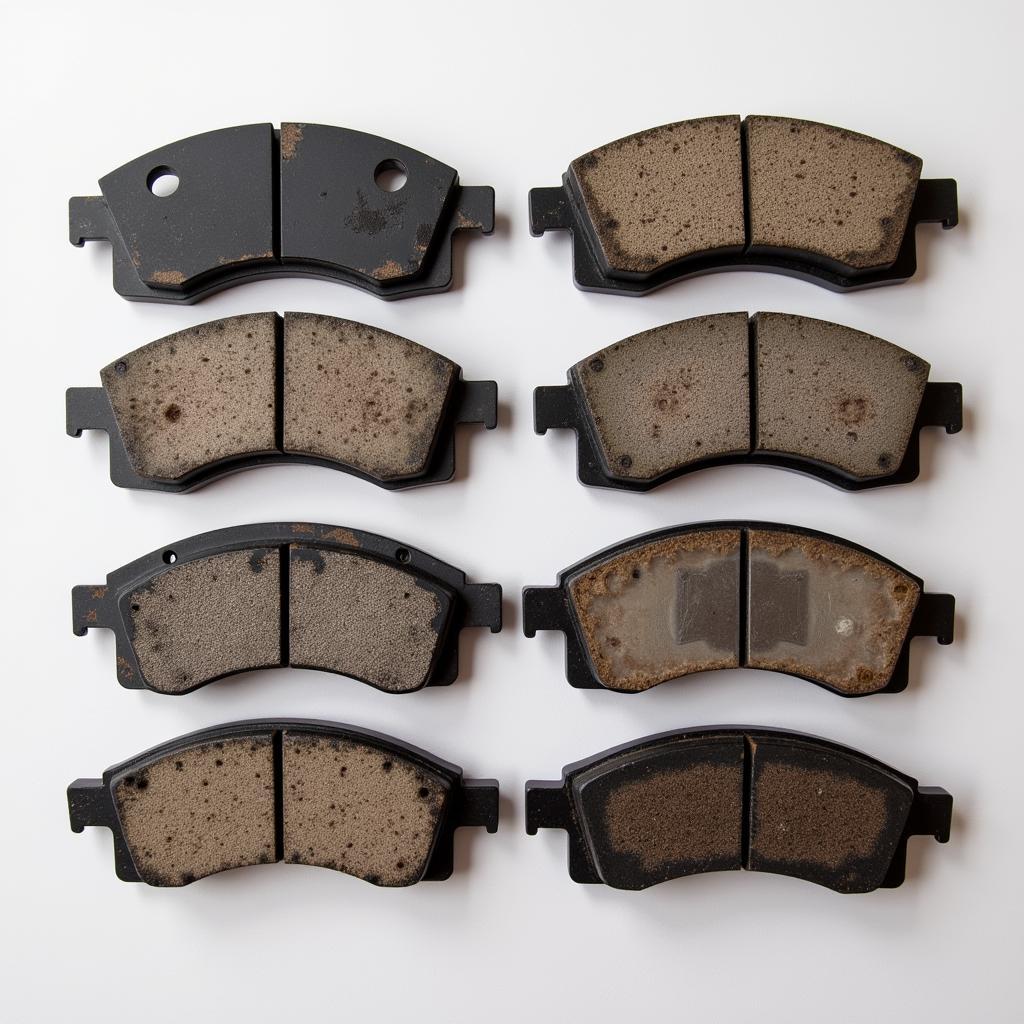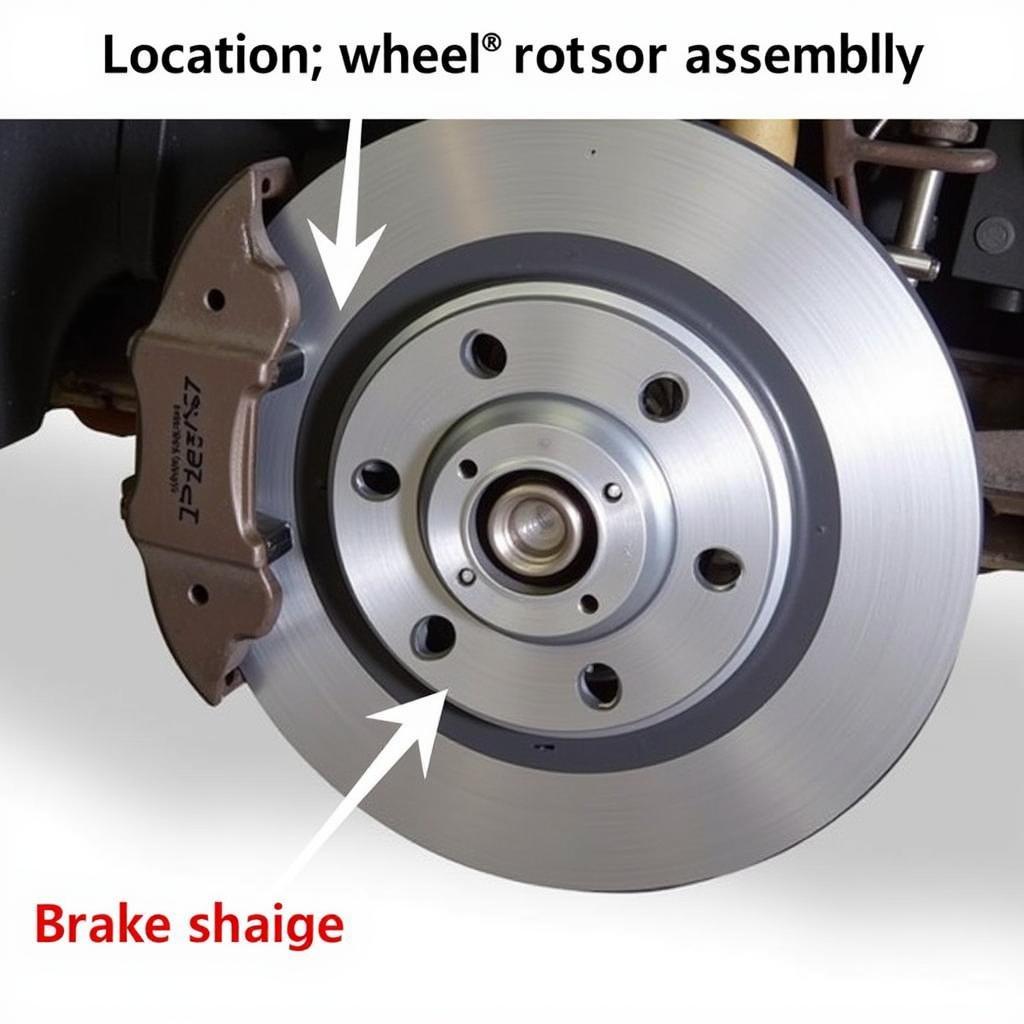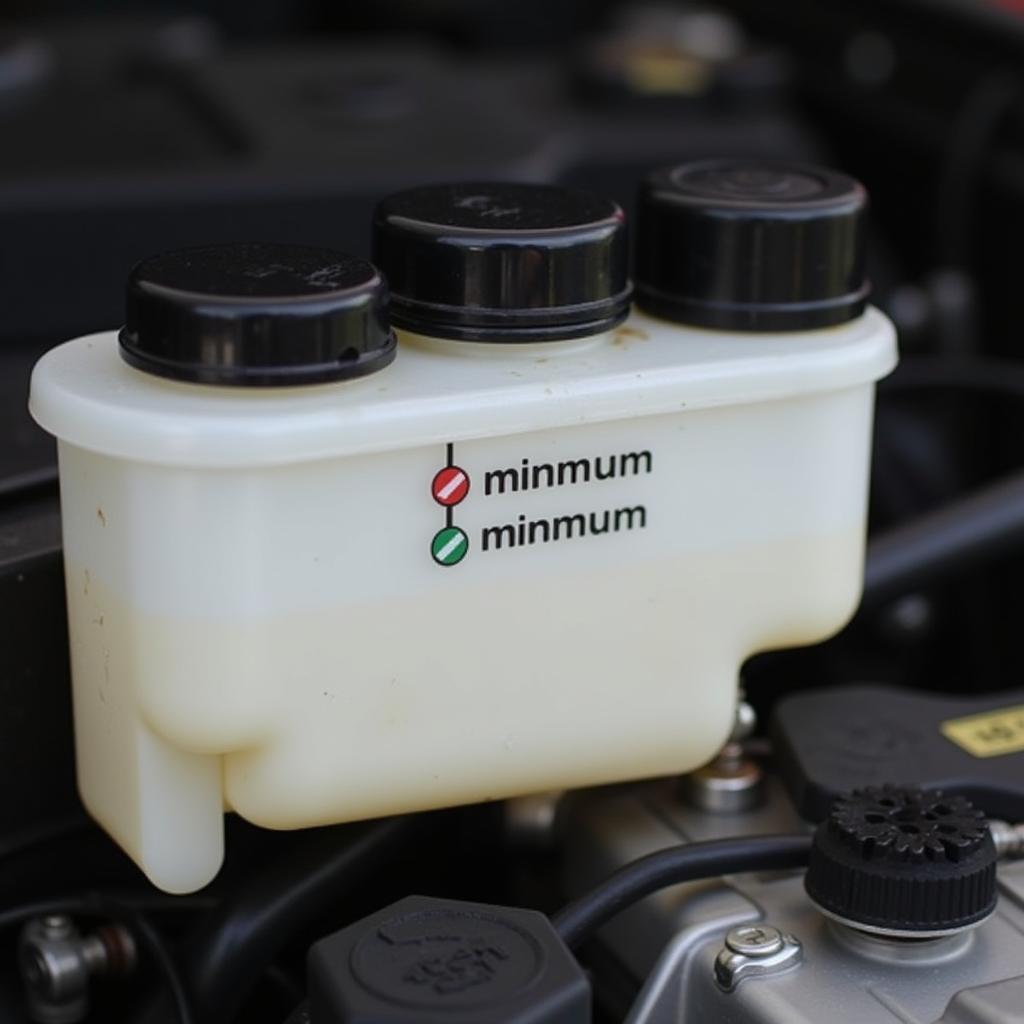A glowing brake warning light on your 2011 BMW dashboard can be a nerve-wracking experience. While it’s always best to err on the side of caution and consult a qualified mechanic, understanding the common causes and potential solutions can help you address the issue effectively.
This comprehensive guide will walk you through various reasons why your 2011 BMW might display a brake warning light and provide practical steps to troubleshoot and potentially resolve the issue.
Common Causes of a Brake Warning Light
Before diving into solutions, it’s crucial to understand what triggers the brake warning light in the first place. Here are some of the most frequent culprits:
1. Worn Brake Pads
This is the most common reason for the brake warning light to illuminate. Brake pads have wear indicators that trigger the light when they wear thin, signaling it’s time for a replacement.
 Worn Brake Pads
Worn Brake Pads
2. Low Brake Fluid Level
Brake fluid is the lifeblood of your BMW’s braking system. If the fluid level drops below a certain point, usually due to a leak, the warning light will activate.
3. Faulty Brake Light Switch
The brake light switch is a small component responsible for activating your brake lights when you press the pedal. A malfunctioning switch can disrupt the brake light circuit, triggering the warning light.
4. ABS Sensor Issues
Your BMW’s Anti-lock Braking System (ABS) relies on sensors to monitor wheel speed and prevent wheel lockup during braking. A faulty or dirty ABS sensor can disrupt the system and illuminate the warning light.
 ABS Sensor Location
ABS Sensor Location
5. Issues with the Electronic Parking Brake
Modern BMWs often come equipped with electronic parking brakes. If there’s a problem with the electronic parking brake system, such as a faulty switch or sensor, the brake warning light may appear.
Troubleshooting and Solutions
Now that you’re familiar with the potential culprits, let’s explore how to address them:
1. Inspect Brake Pads
- What to do: Check your brake pads for wear. If you see less than ¼ inch of friction material remaining, it’s time for a replacement.
- DIY or Mechanic? Replacing brake pads requires mechanical expertise. Unless you’re comfortable working with brakes, it’s best to leave this to a professional.
2. Check Brake Fluid Level
- What to do: Locate the brake fluid reservoir under the hood and check the fluid level. If it’s below the minimum mark, add the recommended brake fluid type for your 2011 BMW model.
- DIY or Mechanic? Adding brake fluid is a straightforward task. However, if you notice the level dropping frequently, it indicates a leak that needs immediate attention from a mechanic.
 Brake Fluid Reservoir
Brake Fluid Reservoir
3. Test Brake Light Switch
- What to do: Ask a helper to observe the brake lights while you press the brake pedal. If the lights don’t illuminate, the switch might be faulty.
- DIY or Mechanic? Replacing a brake light switch is relatively simple. However, if you’re not comfortable with basic electrical work, it’s best to consult a mechanic.
4. Inspect ABS Sensors
- What to do: Visually inspect the ABS sensors on each wheel for any visible damage or debris buildup. Clean any dirty sensors with an electronic cleaner.
- DIY or Mechanic? Diagnosing and replacing ABS sensors require specialized tools and knowledge. It’s recommended to seek professional assistance.
5. Address Electronic Parking Brake Issues
- What to do: Try disengaging and engaging the electronic parking brake several times to see if it resets. If the problem persists, there might be a fault within the system.
- DIY or Mechanic? Troubleshooting electronic parking brake systems requires advanced diagnostic equipment and expertise. Consult a qualified BMW mechanic for proper diagnosis and repair.
When to Seek Professional Help
While some brake warning light triggers can be addressed with basic DIY solutions, it’s crucial to remember that brakes are critical safety components.
“When it comes to brakes, never compromise on safety,” advises veteran BMW mechanic John Miller. “If you’re unsure about any aspect of the diagnosis or repair, or if the problem persists after trying basic troubleshooting, it’s always best to consult a qualified mechanic to ensure your safety and the proper functioning of your BMW.”
Conclusion
A glowing brake warning light on your 2011 BMW should never be ignored. By understanding the common causes and following the troubleshooting steps outlined in this guide, you can take the right steps to address the issue effectively.
Remember, regular maintenance and timely attention to warning signs can prevent more significant problems down the road. When in doubt, always prioritize your safety and seek professional help from a qualified BMW mechanic.
